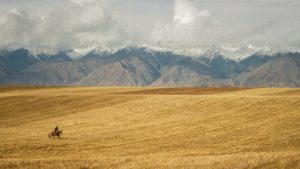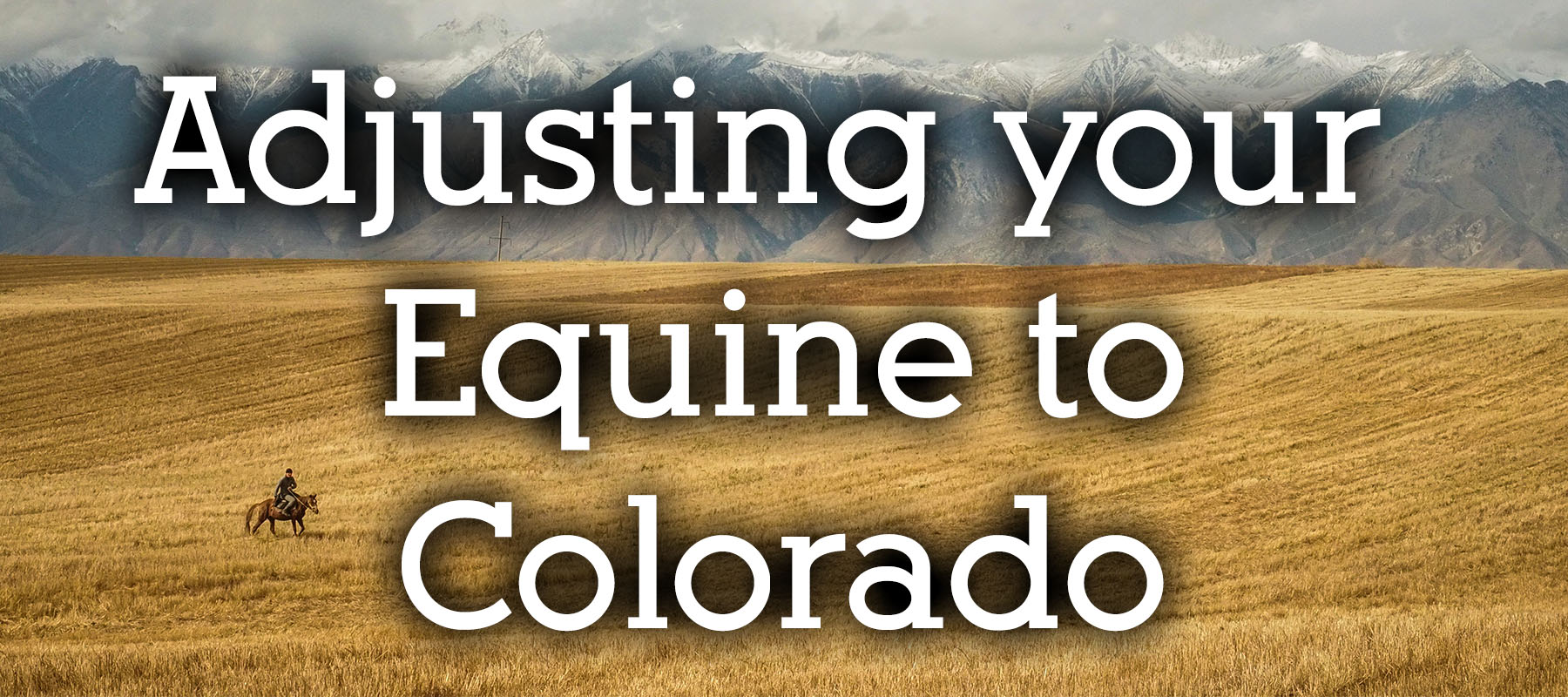
Welcome to Colorado, we have teamed up with Dr. Bret Luedke from Heritage Equine to bring you a complete guide to acclimating your equine friend, whether that be horse, donkey, mule or zebra, to Colorado!
As a horse owner moving to this beautiful state there are a few things you may want to take into consideration to get you and your horse acclimated.
- They don’t call it the Rocky Mountains for nothing! – While our mountain trails can be beautiful, they also can take a toll on most horse’s feet. If you plan on riding out in the wilderness plan on having your horse fully shod; a “few hour ride” can turn into an all-day event as even a tough-hooved animal can get sore quickly walking over sharp rocks. Even over the “soft” ground of a pasture, the dryness and heat make our soil similar to the consistency of concrete and add to the concussive forces of everyday living. Not all horses need shoes, but if you know you’ve got a tender-footed creature you would be wise to search out a good farrier or invest in a good pair of removable boots (eg Easy Boots)
- Vaccinations- As we discussed earlier, Colorado can be hot and dry. The good news about this is that we do NOT have a lot of the same “bugs” that you would see in other parts of the country. Equine Protozoal Myeloencephalitis (EPM), botulism, Potomac Horse Fever (PHF), etc. are diseases we rarely see in Colorado. Find a good veterinarian to discuss exactly what your horse needs, but compared to most locations in the US we tend to vaccinate against fewer diseases.
- Did I say it can get hot in Colorado? Being a mile above sea level increases our exposure to the suns intense rays. This can be a problem in the summer, and more so in the winter when you are exposed to the direct rays coming down from the sky and reflecting from the snow beneath you. This should prompt you to invest in some good sunscreen for yourself but what about your horse? We do see sunburn in horses, especially on those soft, pink noses. Attentiveness to your horses skin is important and may be as simple as putting a fly mask on when outside and occasionally applying some sunscreen to those lightly haired areas around their face. Excessive sun exposure can cause problems in horses just as it does in people.
- I think we’ve established the heat of the summer but what about the cold? Getting a horse acclimated to the cold temperatures of winter can take a few years. Those slick coats that horses get spending their time on the beaches of Florida sure look nice but don’t often help too much when the thermometer hits zero. Investing in a quality, waterproof blanket will be a must until those horses can grow a winter coat to combat the colder temperatures.
- I don’t know if you’ve noticed, but we are pretty big football fans here in Colorado and horses are such a big part of our history we even named our professional football team after them (We’re the Denver Broncos, don’t forget it!). If you’ve ever watched the Broncos play a home game, you’ll have seen all the visiting players with masks over their faces sucking down oxygen because at this altitude there isn’t much of it. Our four-legged athletes can suffer from the same predicament as their bodies aren’t used to the thin air so adjust your training regimen accordingly and give them time to acclimate to the oxygen levels at this altitude.
Other considerations to look into regardless of if you are moving your horse 1000 miles or 1 mile down the road include:
- Feed: bringing a few bales of hay with you from your previous location and weaning your horse onto new feed is always a good idea. Rapid changes in feed can cause GI discomfort and possibly lead to colic.
- Medical Records: Have a copy of your horse’s medical records easily accessible, especially their vaccination history.
- Quarantine: It’s always a good idea to keep your horse separate from other horses for 3-4 weeks when you get to a new location. This decreases the risk of spreading disease to other horses and your horses as well
- Water: Clean water is always a must but pay close attention during the winter months, a tank heater will be a must but still should be checked at least once-a-day.
- Shelter: Shade in the summer and protection from the wind, rain and snow in the winter will make for a happy horse.
If you have any more questions about acclimating your horse, or other equine, to Colorado, feel free to comment below or reach out to Dr. Bret Luedke or any of the wonderful vets at Heritage Equine directly! They are a full-service equine veterinary facility located in Colorado.


You must be logged in to post a comment.